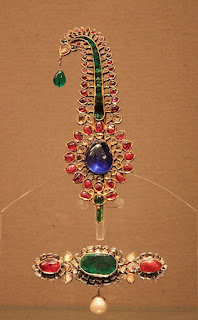Richmal Crompton at the Wikipedia
Audiobook
Videos
RICHMAL
CROMPTON, by Josep Guiteres
BIOGRAPHY
She was born in Bury, Lancashire in 1890, and died in
1969. She was an English writer, specialized in children’s books and horror
stories.
She was the second child of Edward John Sewell, a
protestant pastor and parochial school teacher, and his wife Clara; her older
brother John Battersby was also a writer under the pseudonym John Lambourne.
Richmal Crompton attended St Elphin’s school and won a
scholarship to classical studies at Royal Holloway College London, where she
graduated Bachelor of Arts, and, in 1914, returned to teach classical authors
at St. Elphin’s until 1917. Then, when she was 27 years old, went to Bromley
High School in South London, teaching the same subject until 1923. Having
contracted polio, she lost the use of her right leg. In 1923 and from then on,
she spent her free time to write.
In 1924, she created her famous character William Brown,
the protagonist of thirty-eight books of children’s stories in the naughty William
saga that she wrote until her death.
She is also the author of a collection of stories
about ghosts, the horror novel Dread Dwelling, in 1926, and Bruma,
in 1928. As a writer of horror stories, she is eminent.
She never married and had no children; she was an aunt
and a great-aunt.
THE FALL OF THE IDOL
The Fall of the Idol corresponds to chapter 4 of Just
William with her famous eleven-years-old character William Brown.
In this chapter the writer tells us the adventures of
William narrating his falling in love with his teacher, Miss Drew.
William, as a good student, sat in the back row. Being
in love, he changed his seat to one in the front row. While the teacher explains
the lesson, William has his fantasies with the teacher, but she constantly asks
him questions about what she explains, and so he is forced to study.
Every day the teacher arrived at class, she used to
find some small detail on the table of some admirer, but that morning the table
and the chair were full of greenhouse flowers, evidently left by the lover. When
William got home, he found his sister and two policemen who were looking for
the flower thief.
The next day, Miss Drew was talking to another teacher.
William, who was nearby, understood that Miss Drew liked lilacs; so, William
got lilacs by stealing them from the window of a house with the subsequent
uproar of the owner.
When Miss Drew entered the classroom, she said: “William,
I hate lilacs”. Disappointed, his love vanished, and, as a good student, he sat
again in the background.
My opinion: I liked this story because it is simple, short,
entertaining and written with the fabulous typical English humour.
QUESTIONS
Talk about your school days: were they happy or
boring?
What is your opinion of this saying: “Teach anything
at school and, funny it may be, at once it becomes boring”? (Remember the
example of sexual education in the film by Monty Phyton “The Meaning of Life”.)
William caught a lizard and kept it in his pocket
during the class. Do you have an anecdote to explain about your school days?
What happened to William’s lizard?
Who is the “malicious blind god”?
William starts giving presents to his teacher. What is
your opinion about giving presents to your teacher… or to anybody?
What things you don’t do by halves? Do you always
finish the book you are reading or the film you are watching?
Could William be married by the Pope? Why?
What do you think of helping your children with their
homework?
“He hugged his chains”: what does it mean? Can you
give more examples?
What do you imagine William wanted to do with the pipe
in the garden?
Can you describe a “guelder rose” and a syringe”?
Explain the adventure of the syringe.
What is the meaning of “the idol has feet of clay”?
What do you think William felt like at the end: angry,
happy, or disappointed?
VOCABULARY
figures, mug, 3 ½ d, mouth organ, putty, obliging,
blood-curdling, outshine, hothouse, riot, soulfully, nonplussed, hubbub,
conservatory, week’s mending, babbling, leading article, beaming, ole, ornery,
rent, jarred, literal






